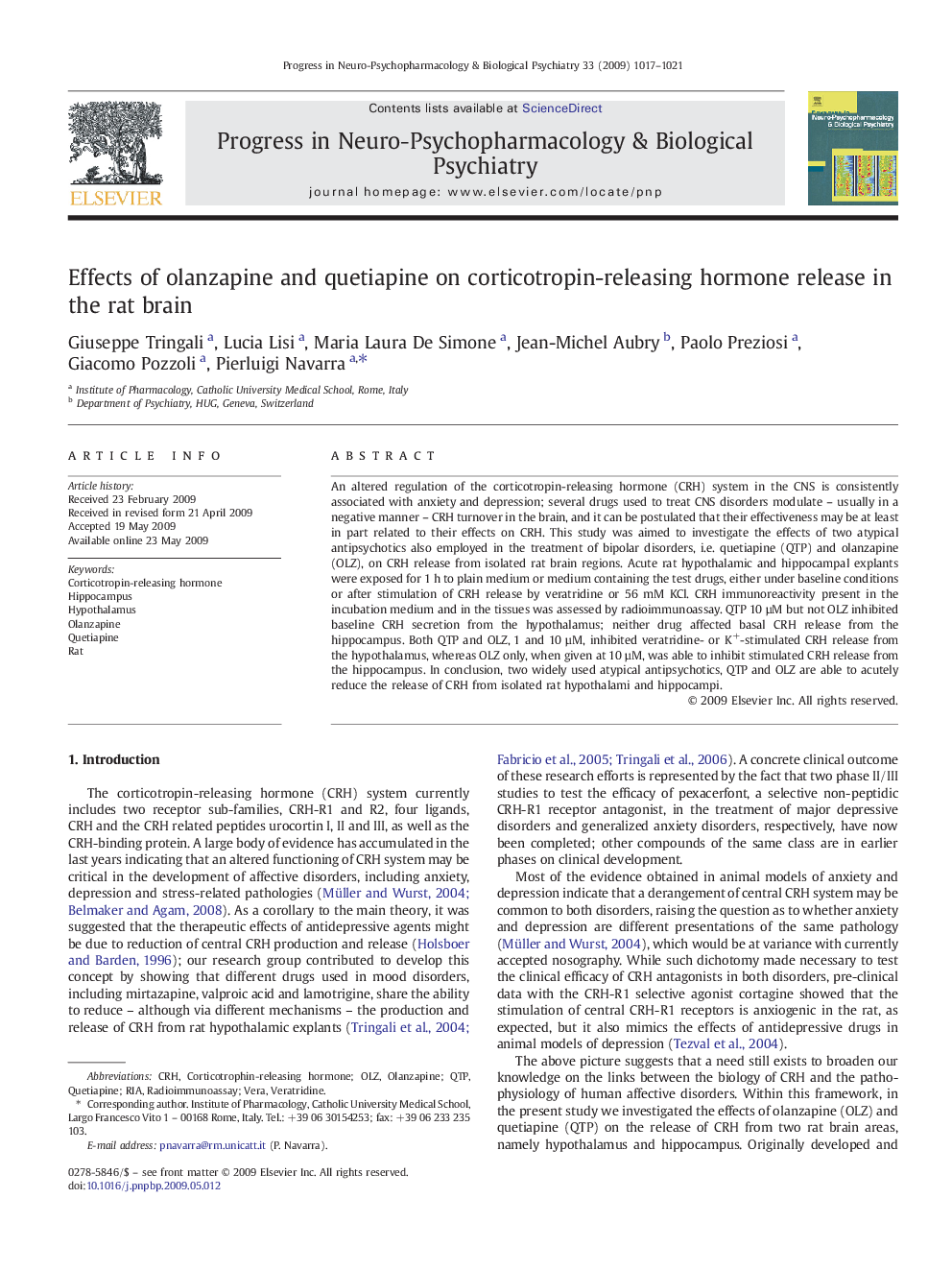| Article ID | Journal | Published Year | Pages | File Type |
|---|---|---|---|---|
| 2565815 | Progress in Neuro-Psychopharmacology and Biological Psychiatry | 2009 | 5 Pages |
An altered regulation of the corticotropin-releasing hormone (CRH) system in the CNS is consistently associated with anxiety and depression; several drugs used to treat CNS disorders modulate – usually in a negative manner – CRH turnover in the brain, and it can be postulated that their effectiveness may be at least in part related to their effects on CRH. This study was aimed to investigate the effects of two atypical antipsychotics also employed in the treatment of bipolar disorders, i.e. quetiapine (QTP) and olanzapine (OLZ), on CRH release from isolated rat brain regions. Acute rat hypothalamic and hippocampal explants were exposed for 1 h to plain medium or medium containing the test drugs, either under baseline conditions or after stimulation of CRH release by veratridine or 56 mM KCl. CRH immunoreactivity present in the incubation medium and in the tissues was assessed by radioimmunoassay. QTP 10 µM but not OLZ inhibited baseline CRH secretion from the hypothalamus; neither drug affected basal CRH release from the hippocampus. Both QTP and OLZ, 1 and 10 µM, inhibited veratridine- or K+-stimulated CRH release from the hypothalamus, whereas OLZ only, when given at 10 µM, was able to inhibit stimulated CRH release from the hippocampus. In conclusion, two widely used atypical antipsychotics, QTP and OLZ are able to acutely reduce the release of CRH from isolated rat hypothalami and hippocampi.
